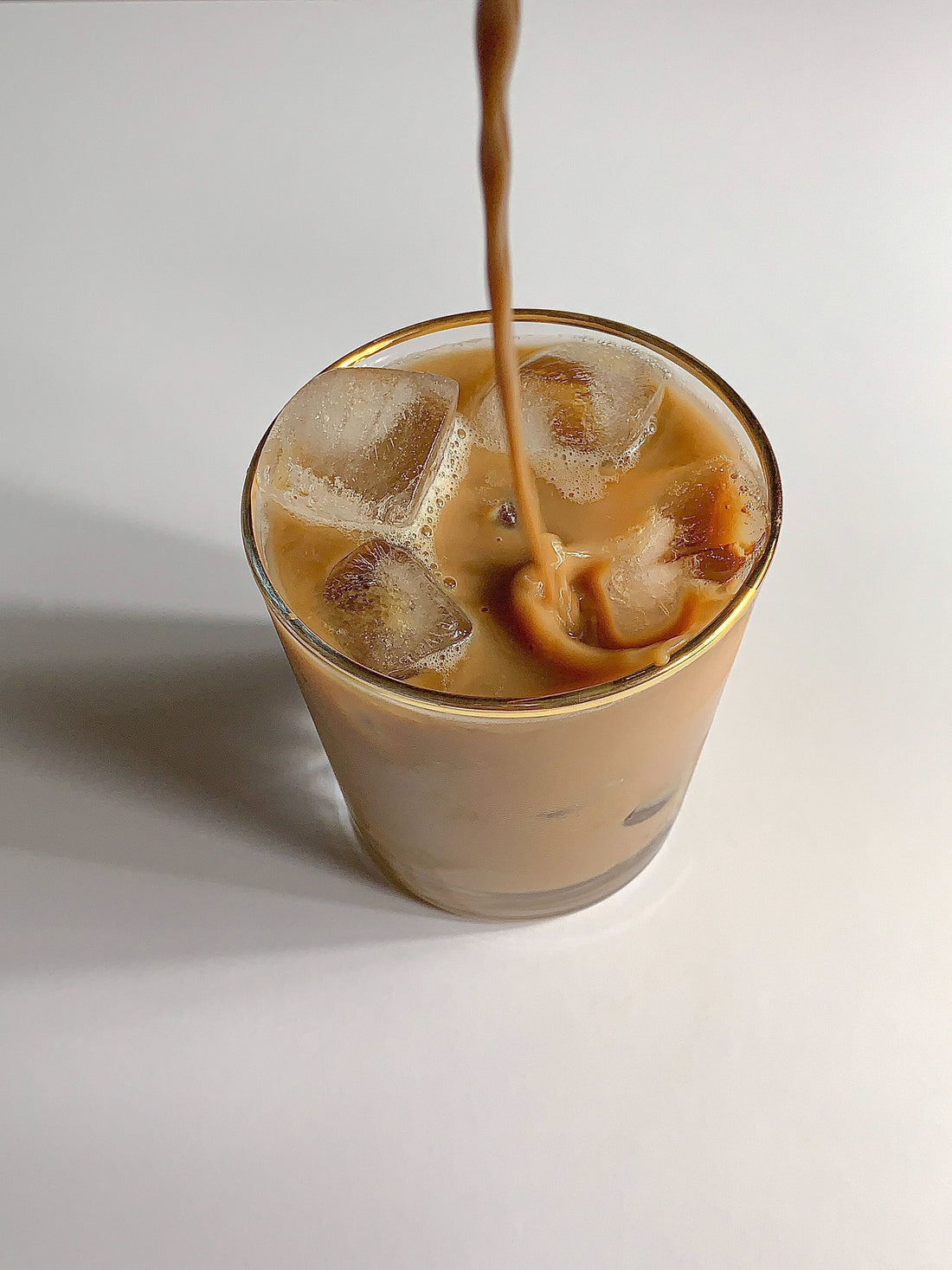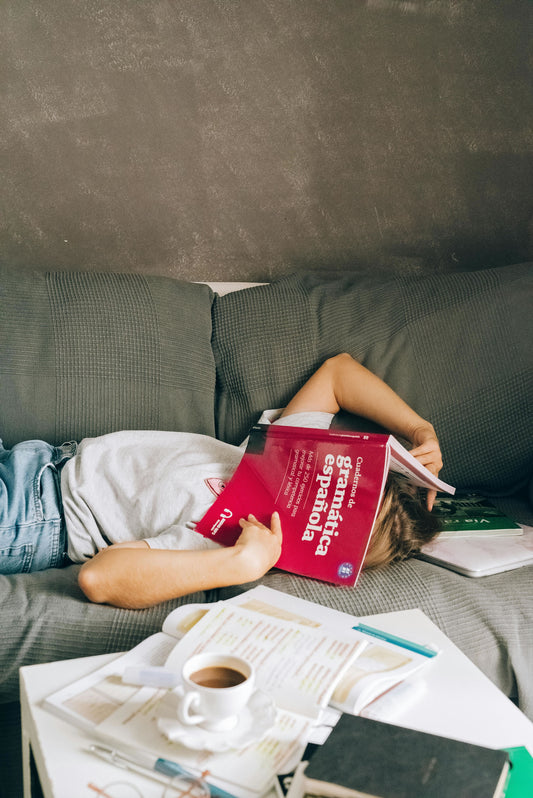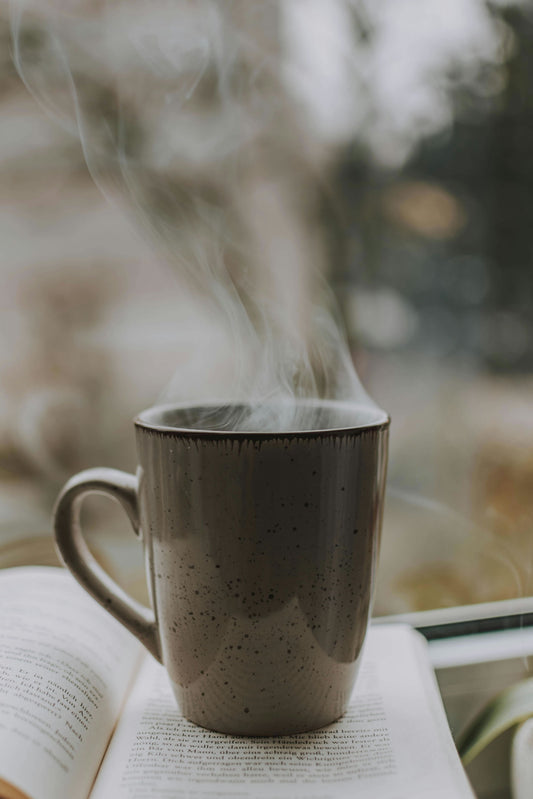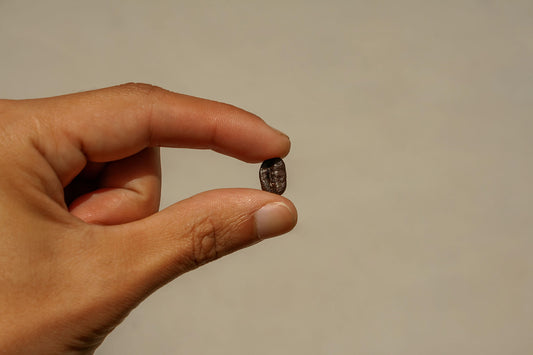The phrase "coffee fix" has transformed into more than just a string of words as it represents a personal and cultural ritual that goes beyond just drinking coffee. It has deep symbolic meaning in our daily lives.
For many, it's a soothing practice that begins their day off right, giving them energy and a sense of security. The coffee fix is more than just a caffeine boost but also a symbol of familiarity and reliability, which can help ease anxiety and depression.
On top of that, it brings people together, creating opportunities for friendship and conversation over mutual cups. By delving into the history of coffee, we can better understand how it has shaped our lives, from its cultural origins to the personal ties that have made it an integral part of our routine.
/ IN THIS ARTICLE
01. Defining the Coffee Fix Phenomenon
02. Coffee as a Cultural Staple
03. The Psychological Impact of a Coffee Fix
04. Coffee Fix and Its Role in Daily Productivity
05. Health Benefits and Concerns of Regular Coffee Consumption
06. The Social Aspect of Coffee in Life
07. Coffee Fix vs. Coffee Addiction: Understanding the Difference
08. The Art of Crafting the Perfect Coffee Fix
09. How Coffee Preferences Reflect Personalities
10. The Economic Impact of Coffee Consumption
11. Home Brewing vs. Cafe Culture
14. Frequently Asked Questions
15. Conclusion
Defining the Coffee Fix Phenomenon
The 'coffee fix' phenomenon describes the widespread and habitual use of coffee as a means to manage cravings, increase energy, or just appreciate the flavorful and fragrant drink. Regardless of one's location or cultural background, this practice has been ingrained in the daily lives of many people.
Everything about getting a "coffee fix," from the soothing scent of freshly brewed coffee to the camaraderie of sharing a mug with coworkers or friends, is more than just getting your caffeine fix. Notably, the 'coffee fix' is an effective and dependable way to combat lethargy or exhaustion, providing a brief escape and revitalization in the middle of a busy day.
The worldwide popularity of coffee is fueled by its accessibility and convenience. In today's fast-paced world, where time is frequently a precious commodity, many turn to coffee as a reliable and gratifying pick-me-up. In the end, the 'coffee fix' phenomena shows how coffee is important both culturally and practically for improving everyday life.
Coffee as a Cultural Staple
Throughout history, coffee has been a much-loved drink. The cultivation and use of coffee in the Philippines have a long and storied history that begins with the colonial era. This article will discuss where coffee came from, how it is grown in the Philippines, and how important it is to the economy and culture of the Philippines.
Coffee's Origins in the Philippines
When the Spanish colonised the Philippines in the late 18th century, they brought coffee with them. Lipa, Batangas, the site of the earliest coffee plantations, would go on to become the coffee centre of the Philippines. Coffee was second only in importance to tobacco as an export item by the turn of the nineteenth century.
Coffee cultivation in the Philippines
Nowadays, the Philippines is renowned for its high-quality Arabica and Robusta coffee beans. Batangas, Benguet, and Bukidnon are just a few of the many places in the Philippines that produce coffee. The distinctive flavour profiles of Philippine coffee are influenced by the diverse weather and soil types of these places.
Smallholder farmers, many of whom are members of the same family, cultivate the majority of the coffee beans grown in the Philippines. More and more farmers are opting for organic and shade-grown coffee as a means to reduce their environmental impact.
Coffee's Importance in Philippine Culture and Economy
One of the most important sectors of the Philippine economy is the coffee business. With an annual turnover of over $100 million, coffee is the second-largest agricultural export for the Philippines, according to the Philippine Coffee Board. The coffee industry in the Philippines helps rural communities thrive while employing thousands of people.
The Psychological Impact of a Coffee Fix
Since coffee is a beverage that is enjoyed all around the world, many people find themselves consuming it every day. The effects of coffee on one's mental health, mood, and general happiness are discussed in this essay.
Mood Enhancement
Many people find that drinking coffee on a regular basis improves their mood. One of coffee's main ingredients, caffeine, causes the brain to release more feel-good chemicals called dopamine and serotonin. These compounds are known as "feel-good" neurotransmitters because they are essential for mood regulation.
Alertness and Cognitive Function
Increased alertness and enhanced cognitive function are effects of caffeine's stimulant characteristics. Improved concentration, attention, and general cognitive function may follow. Caffeine sensitivity and tolerance are two variables that may cause the magnitude of these benefits to differ among people.
Moderation and Anxiety
Although most people can safely consume moderate amounts of caffeine, there may be detrimental psychological effects associated with excessive consumption. Increased nervousness, fidgetiness, or restlessness may occur in some people. Finding the right balance is key to avoiding the negative effects of caffeine on mental health.
Dependency and Withdrawal
Some people become dependent on coffee and suffer withdrawal symptoms if they don't drink it every day. Some people may experience irritability, headaches, and weariness as a result of drinking coffee, which suggests that it has a role in their mental health.
Sleep Disruption
If you have trouble falling asleep or staying asleep, caffeine's stimulating effects might be to blame. Disruptions to regular sleep patterns may have long-term detrimental effects on mental health because of how important sleep is.
Individual Variability
It's important to note that the mental effects of a daily coffee fix differ from person to person. A person's caffeine sensitivity, general health, and heredity all have a role in the specific ways in which coffee impacts their mood and mental health. The things that help one individual could not help another at all.
Cultural and Social Aspects
Regularly indulging in a cup of coffee might have a calming effect on the mind. A sense of belonging and camaraderie can flourish during coffee breaks because they are times for mingling and unwinding. When considering the total psychological effect of a regular coffee habit, these social factors can be rather influential.
A daily coffee fix has complex psychological effects. If consumed in moderation, it may have a beneficial effect on mood, alertness, and social well-being; however, if consumed in excess, it can cause anxiety and sleep problems. To get the most out of coffee while limiting its negative effects, it's important to know how your body works and to drink it moderately.
Coffee Fix and Its Role in Daily Productivity
Productivity is a good thing since it affects how well people do their jobs on a regular basis. There are various ways in which coffee might help workers be more productive.
Coffee Increases Productivity
A change has occurred in the way coffee is consumed culturally. The psychoactive ingredient caffeine found in coffee and other caffeinated beverages can increase the body's supply of the hormones cortisol and adrenaline. So, coffee makes you more alert, focused, and responsive while also removing lethargy.
Caffeine in coffee also has the ability to make you feel more alert and energised. At the same time, the necessity of modernisation is putting more and more emphasis on coffee shops as a way of life. Nowadays, coffee shops serve as meeting spots for friends and neighbours.
Workplace Time Waste Reduction
Employees are more likely to stay and get additional work done when they have access to coffee at work.
For many years, coffee cafes have been a welcome respite for those who toiled away in the early hours of the day. From the coffee itself, word spread from London to New York in the 16th century and continues to this day (Ukers, 1922).
When workers leave the office to buy coffee, the company can be losing out on productive time. This is why some companies provide designated areas for staff to use coffee makers; it boosts productivity.
The mere mention of coffee boosted the worker's motivation and ability to stay on task while on the clock (Mohammad Bakri Alaa Hammami, 2018).
Assisting with Employee Socialisation
Some employees may feel uncomfortable breaking the ice by bringing their own coffee to the office. Additionally, it can serve as an icebreaker, assist new hires meet their coworkers, and designate a certain space in the office. It also means that workers will have opportunities to meet and talk to one another on the job.
If your coworkers have spent the entire day cooped up in their desk or cubicle, a coffee break is a great opportunity to break the ice and chat. There has long been anecdotal evidence that coffee breaks break the ice at the office and afterwards (Ukers, 1922).
Researchers have shown that coffee plays an important social function; for example, "the coffee consumption behavior by coffee drinkers can be seen from actor or coffee drinker, activities performed, appearance reasons coffee consumption and coffee drinking places" (in a sociological study journal).
Factors such as social media, lifestyle, income, motivation, acquaintances or coworkers, family, and coffee users' level of expertise all play a role in shaping coffee consumption habits. Indicators of consuming behaviour include things like buying things just to keep up appearances or prestige, buying things at inflated prices, and buying things to show off one's social position. Solikatun wrote about this in 2015.
A strong drive to finish the job is just one of many methods to be more forceful at work; stimulants provide additional benefits to the body. From the Middle Ages to the modern day, coffee has been an occasional need. Neither the original nor the secondary source has made any prior reference of it, and this proves it.
Before we wrap up this article, We want to make a quick point about how important it is to keep farmers' sustainability in mind when thinking about how to keep coffee cultivation sustainable and how it impacts people's lives. It would be great if we can have this conversation sometime.
Health Benefits and Concerns of Regular Coffee Consumption
One of coffee's many benefits is its ability to increase energy and sharpen concentration.
To get their day off to a good start, many individuals rely on their regular cup of coffee first thing in the morning.
You need more incentive to start making coffee than just its stimulating effects; research has connected it to a laundry list of possible health benefits as well.
Increases energy levels
Caffeine, an ingredient in coffee, is a CNS stimulant well-known for its anti-fatigue and energy-boosting properties.
Caffeine does this by increasing levels of dopamine and other neurotransmitters that control your energy levels by blocking the receptors of the neurotransmitter adenosine.
Caffeine significantly decreased participants' subjective degrees of exhaustion and extended the time to exhaustion during a cycling workout by 12%, according to a single small study.
Caffeine supplementation before and throughout a game of golf was associated with enhanced performance, more perceived energy, and less weariness, according to another study with identical results.
May reduce type 2 diabetes risk
Consistent coffee use may reduce the chance of acquiring type 2 diabetes, according to several studies.
Actually, a 6% reduced chance of getting type 2 diabetes was associated with each cup of coffee drunk daily, according to one analysis of 30 research.
The beta cells in your pancreas are crucial for creating insulin to manage blood sugar levels, and it is believed that coffee can sustain their function.
More than that, it has a lot of antioxidants and might influence insulin sensitivity, inflammation, and metabolism—three factors that contribute to type 2 diabetes.
Could benefit brain health
Research on the effects of coffee on neurodegenerative diseases, such as Alzheimer's and Parkinson's, has been inconsistent, while some trials have shown promise.
Caffeine users were far less likely to get Parkinson's disease, according to a meta-analysis of 13 research. In addition, research has shown that caffeine can delay the onset of Parkinson's disease.
An additional meta-analysis including eleven observational studies including over 29,000 individuals confirmed that higher coffee consumption was associated with a decreased risk of Alzheimer's disease.
Also, some research suggests that a reduced risk of dementia and cognitive decline may be linked to moderate coffee drinking.
Could aid in weight loss
Coffee may help with weight management if it changes fat storage and supports gut health, as several studies have shown.
As an example, a meta-analysis of 12 research found that males, in particular, may benefit from drinking more coffee in order to reduce their body fat percentage.
Increasing coffee consumption was associated with reduced body fat in females, according to an additional study.
Those who drank between one and two cups of coffee daily were also 17% more likely to get the necessary amount of exercise than those who drank less than one cup daily, according to the same study.
Maintaining a healthy weight may be easier with more exercise.
Lowers depression risk
According to some research, regular coffee consumption may reduce the likelihood of developing major depressive disorder.
An 8% reduced risk of depression was associated with each cup of coffee drunk daily, according to one meta-analysis of seven trials.
If you drink four or more cups of coffee daily, as opposed to just one, you're much less likely to suffer from depression, according to another study.
In addition, a study including over 200,000 individuals found that individuals who drank coffee had a decreased risk of suicide.
Could prevent liver disease
Interestingly, coffee may help maintain healthy liver function and provide some protection against disease, according to a number of studies.
An example would be a study that indicated a correlation between consuming more than two cups of coffee daily and a decreased risk of scarring and cancer in individuals with liver disease.
According to other studies, the chance of dying from chronic liver disease decreased in correlation with coffee consumption.
A 15% reduced risk was associated with daily coffee consumption of one cup, and a 71% reduced risk with daily coffee consumption of four cups.
Researchers have shown that coffee drinkers had less liver stiffness, a marker of fibrosis (the development of scar tissue in the liver), than those who didn't drink coffee.
The Social Aspect of Coffee in Life
We made our commercial coffee makers to bring the benefits of coffee to the office, but brewing a pot of Joe is also a fun way to meet new people! This is why we think sipping coffee with friends is the best idea.
Energy
We continue to include coffee's infamously high caffeine level among our favorite things about it. An energy boost is typically much appreciated because, unfortunately, most of us are exhausted most of the time due to modern life.
A coffee meet-up is the ideal setting for a catch-up since, while some individuals may get their energy from just being in the company of others, those of us who are more introverted could usually use a little caffeine to get the conversation started.
Community
Meeting locations, social hubs, entertainment venues, and intellectual meeting places have all been coffee houses for a long time. They have historically served as gathering places for members of the community to form and grow social networks, and this may be the case where you are located in the nation.
In a small town or hamlet, the odds of running into a friend or acquaintance at the coffee shop are rather high. So, popping in for a cup of coffee from their commercial machine could lead to a pleasant surprise—an accidental catch up.
When you go to the same coffee shops day in and day out, even in big cities, you could start to recognise people and even get a kind greeting every morning.
Mutual Ground
Coffee shops are perfect for people-watching and casual conversation since they provide an atmosphere where most people feel at ease. So, it seems to reason to meet over coffee whether you're catching up with a friend who lives across town or meeting someone you haven't seen in a while!
Office Culture
One of the goals of our commercial coffee machines is to foster a welcoming working culture by bringing people together around a shared love of coffee.
We all know that "let's have a cup of coffee" is code for "let's have a chat," so if you run into a coworker at the office coffee machine, it's a good chance to ask how they are. Even in the office, coffee breaks provide a chance for coworkers to relax and converse about things other than work.
Coffee Fix vs. Coffee Addiction: Understanding the Difference
For the potential benefits of coffee, like enhanced alertness and mood, a healthy fix is drinking it moderately and deliberately.
People who regularly consume moderate amounts of coffee, usually between one and three cups, tend to have a healthy coffee habit. They take pleasure in the drink on an as-needed basis without becoming dependent on it, savoring it for its flavor.
But a problematic coffee addiction is defined by an unhealthy preoccupation with coffee and an inability to manage one's use, which normally has negative outcomes. When trying to reduce their coffee consumption, people who are addicted to it may encounter symptoms such as agitation, insomnia, and restlessness.
In addition to affecting one's sleep and general health, coffee addiction can disrupt daily functioning. The effects on one's physical and mental health, as well as the degree to which they are consumed in moderation, distinguish a healthy coffee fix from an addictive one.
The Art of Crafting the Perfect Coffee Fix
Choosing the right beans and using the right brewing methods are only two of the many moving parts in the complex ballet that is making the ideal cup of coffee. Finding the sweet spot between flavour desire and scientific precision is key to making the perfect cup.
Having high-quality coffee beans is priority number one. Choose premium beans that have just been roasted. Beans from different areas and types have different flavour profiles, so you should try them all until you discover one you like. To explore the subtleties in flavour and scent, try blending beans of different origins or trying beans of other origins.
The beans must be ground soon before brewing for optimal flavour. Crucial to any brewing process is the grind size. As an example, a fine grind is required for espresso, whereas a coarse grind is more suited to the French press. The objective is to get the most out of the flavour extraction process without getting too much bitter components.
The importance of water quality is often disregarded, despite its critical nature. Water with contaminants in it could change the flavour, so it's best to use bottled or filtered water. For the most effective extraction, the water temperature should be between 195 and 205°F, or 90 and 96°C. Keeping these factors constant will provide you a solid foundation from which to build your morning joe.
The end product is heavily influenced by the brewing process. Espresso machines, pour-overs, French presses, and conventional drip coffee makers all extract flavours in their own unique ways. Try out a few different approaches until you discover one that works for you in terms of taste and lifestyle.
It is crucial to know how much water to add to your coffee. One to two tablespoons of coffee for every six ounces of water is a good rule of thumb, but you can tweak it to your liking. To get the right amount of flavour and intensity, adjust the ratio.
At long last, commit to the practice of patience. Do not hurry the brewing process; it will take its time. As the scent drifts through the air, pause and enjoy it. When you make the perfect cup of coffee, it's about more than simply the taste.
Crafting the ideal coffee fix is a delicate balancing act between imagination and accuracy. Take pleasure in the process of developing your own coffee-making ability while you savour the subtleties of flavours and try out various ingredients. Just keep in mind that everyone has their own idea of what makes the ideal cup, and that the real fun is in trying new things and getting better at it.
How Coffee Preferences Reflect Personalities
While Durvasula did find some commonalities among coffee drinkers, she concluded that "we are no more defined by our coffee orders than we are by our astrological signs."
How does your coffee order reveal something about you? While the results were inconclusive, they were intriguing.
Black coffee
According to Durvasula's research, black coffee users are typically impulsive, stubborn, and traditionalist. Another thing they do is "keep things simple," which is understandable given that it's only a coffee order.
On the other hand, you might like your coffee black for nutritional reasons or because you've heard good things about its health advantages.
Cappuccinos and lattes
The results of Durvasula's poll suggest that you may be a people-pleaser if you enjoy sweetening your coffee with sugar, milk, or creamer.
Helpfulness, openness, and generosity were more common among latte users, according to her poll. However, they may have a tendency to put others' needs above their own, as is typical of people-pleasers.
Also, if you drink your coffee with milk, it could mean that you're not lactose intolerant, or that you are, but you're willing to take the chance. We wish you the best of luck!!!
Iced coffee
Durvasula found that people who like iced or blended coffee tend to be more outgoing and spontaneous. People who opt for iced coffee may be careless, imaginative, and impressionable, but they may also make poor choices frequently.
Milk substitutes, decaf, and other orders
According to Durvasula's study, those who were more particular in their orders (e.g., specifying that they want decaf coffee or milk substitutes) tended to be more possessive of control, obsession, and perfection.
Positively, they had a higher propensity to select nutritious options.
On the other hand, it could be more straightforward: they may have health issues that necessitate limiting their consumption of caffeine or dairy.
Cooperative-grown coffee
Coffees that are considered specialty, such as "fair trade," "cooperative-grown," or "ethical," tend to be more expensive. Even though it may cost more, extroverted and conscientious individuals are more likely to pick ethical coffee, according to a 2019 study.
People who are more independent and self-assured, on the other hand, were less likely to shell out cash for specialty coffee.
Instant coffee
Durvasula found that people who consume instant coffee are more likely to be carefree. They may, however, be sluggish planners or chronic procrastinators.
A preference for instant coffee could be influenced by factors such as cultural norms, frugality, and upbringing, as it is often more affordable and readily available in some countries.
The Economic Impact of Coffee Consumption
In an effort to quantify coffee's full economic impact on the United States, the National Coffee Association has, for the first time since 2015, hired Technomic to conduct fresh research.
We all know that coffee is the most popular drink in the United States—even more so than tap water. But did you know that coffee has a profound impact on communities all over the nation? From the grocery store to the dairy farm, it generates tax revenue, creates jobs, and more.
Highlights include:
- In 2022, the coffee industry's total economic impact on the United States was $343.2 billion, up 52.4% from 2015.
- Almost $110 billion was spent on coffee by consumers in 2022.
- More than $100 billion in salaries are generated by the coffee industry, which in turn supports over 2.2 million jobs in the United States.
The majority of the economic activity in the U.S. coffee business occurs in the food service sector, where consumers have their coffee prepared. This sector invests in equipment, labor, and materials needed for service, which is reflected in these data.
Parts of the coffee industry consist of:
- Buyers who purchase goods
- Shipping and trucking are all parts of transportation.
- Packaging and roasters
- A variety of whiteners, such as milk and creamers
- Sugar substitutes
- Food seasonings
- Throwaway goods
- Maintenance
- Commercial and residential coffee service equipment
- Allied services including accountancy, advertising, and public relations
- Salary and taxation
- Spending by coffee economy workers as a result of their jobs
Technomic, Inc. is a prominent consulting firm in the food and beverage business; NCA commissioned this analysis from them.
Interviews with industry leaders, figures from the United States government, public company reports, Technomic's own databases covering the beverage industry and allied industries, and the IMPLAN modelling program were among the many primary and secondary sources utilized.
In 2022, 72% of American adults reported drinking coffee, according to the NCA National Coffee Data Trends research, and this report reflects the economic effect of the coffee sector for that year.
Home Brewing vs. Cafe Culture
Making coffee at home and enjoying it at a cafe each have their own special qualities.
Home Brewing
Making one's own coffee at home gives one a feeling of mastery and personalization. To make it just how you like it, you get to choose out the beans, the grind size, and the brewing technique.
When you brew your own coffee at home, you may play around with different roasts and brewing methods until you find the one that suits your taste.
On top of that, it's a great way to start the day with mindfulness and intimacy, and the act itself can be therapeutic. The time and effort required to become an expert brewer, as well as the expense of high-quality equipment, are potential drawbacks.
Cafe Culture
Contrarily, there is more to savoring coffee in a neighborhood cafe than just the drink. The atmosphere is one of a kind and frequently trendy because to the professional baristas, friendly customers, and comfortable seating. Cafes provide a large variety of specialty drinks, allowing you to try new flavors.
Coffee shops are more than just a location to get your caffeine fix; they're also gathering spots where you can meet new people, catch up on work, or just relax. The price and the possibility of losing control over the coffee-making process are two possible drawbacks, though.
People who want a more hands-on approach and making their own unique brew at home tend to gravitate towards home brewing, while those who prefer a more communal, experiential, and expertly made cup of coffee gravitate towards cafe culture.
Which one is better depends on the consumer's lifestyle, personal preferences, and the importance they put on the ritual of drinking coffee.
Frequently Asked Questions
How Do You Use Coffee Fix In A Sentence?
"Probably Bill, coming to get his coffee fix," he said. To the Cafe du Monde, day or night, for another coffee fix. Outside the big cities, one's best bet for a coffee fix may rest with Google Search or Yelp.
How Do You Fix Your Coffee?
Weak coffee is caused by the water not being hot enough (apparently coffee is picky, just like its drinkers), the coffee-to-water ratio being off or the coffee not being ground properly. To fix weak coffee, add a little instant coffee to the cup and next time make sure you added enough coffee grinds to the filter!
How Do You Fix Strong Coffee?
If the coffee has the right flavor balance but is too strong, you can dilute it by adding water after the fact. This won't change the extraction, just the strength.
What Words Best Describe Coffee?
Some common words to describe the taste of coffee include: bitter, acidic, smooth, rich, bold, nutty, chocolatey, fruity, floral, and earthy.
How Many Benefits Does Coffee Have?
Coffee contains a number of useful nutrients, including riboflavin (vitamin B2), niacin (vitamin B3), magnesium, potassium, and various phenolic compounds, or antioxidants. Some experts suggest that these and other ingredients in coffee can benefit the human body in various ways.
Conclusion
Coffee has several functions in people's life, and this article delves into them all. Starting with the fact that coffee is a daily routine for millions of people all across the globe, the author brings forth a number of important aspects.
This article explores the scientific side of coffee, talking about its energizing effects and its health advantages. Furthermore, the article delves into the social aspect of coffee, highlighting how it may spark conversations and bring people together.
Coffee is depicted throughout the article as a statement of welcome, tradition, and even defiance in many cultures, touching on its cultural importance. In the end, the story highlights the significant influence of coffee on people's lives by bringing together the physiological, social, and cultural aspects of the experience.
The significance of coffee in molding daily routines and cultural narratives around the world goes much beyond its basic function as a beverage.




